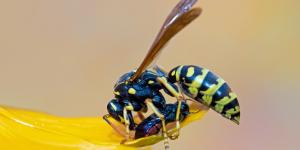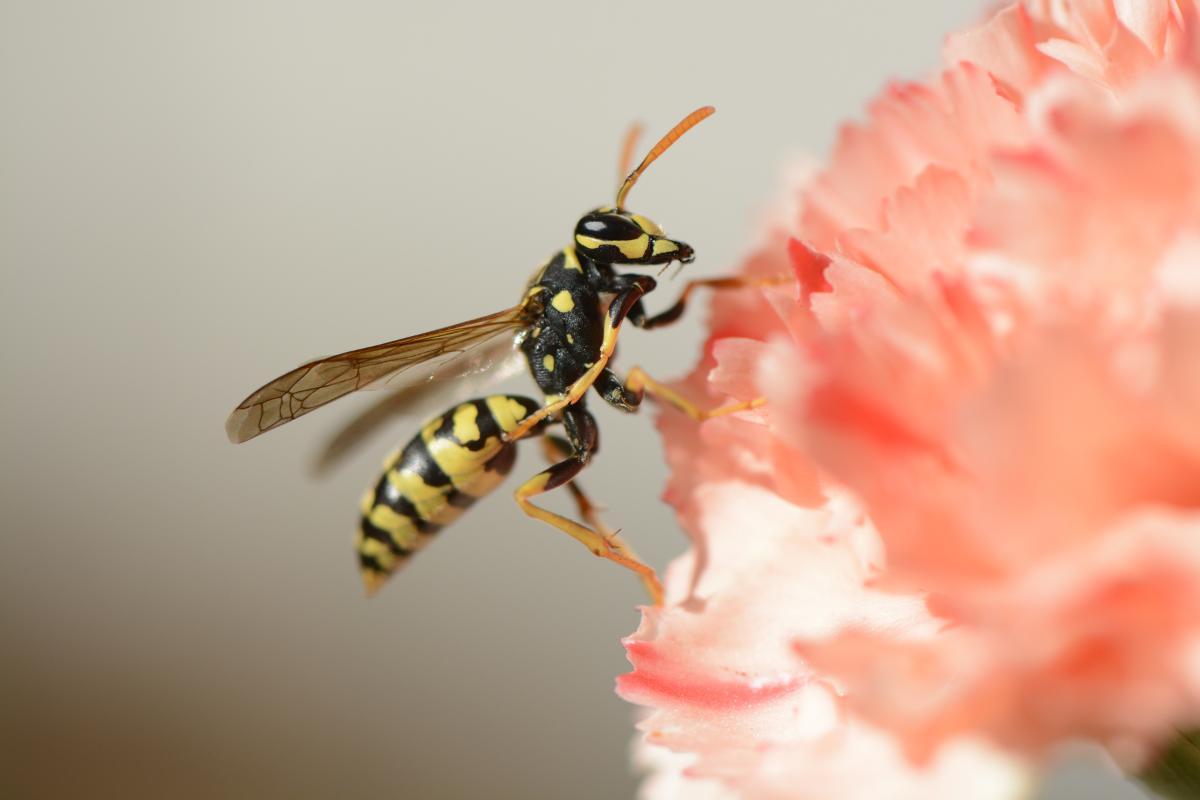Does a Wasp Make Honey?

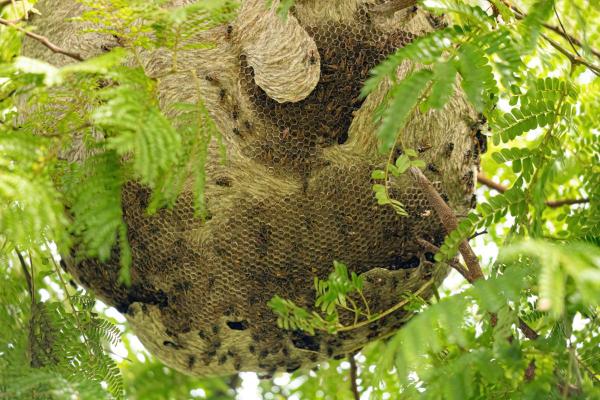
Wasps are insects classified within the order Hymenoptera, the order which also contains bees, sawflies and ants. This is due to various characteristics which each individual species shares such as a narrow waist, hamuli wings and segmented antennae. Bees and wasps are known for their ability to sting, but this does not apply to all members of the order. Bees and wasps share other similarities such as their distinct coloration, but there are also key differences. Bees are known for their honey production, but does a wasp make honey?
There are some species of wasp which do make honey, but they are in the minority. AnimalWised finds out more about the wasps which produce honey, as well as how and why they do so.
Do wasps also make honey?
Bees are pollinators, carrying pollen on their bodies from flower to flower as they search out nectar on which they feed. Honey is a product made through the processing of this nectar. The main function of honey is to feed bees during times when flowers are scarce, usually due to negative environmental conditions. In this way, bees like the European honey bee (Apis mellifera) are highly productive in making honey, a product consumed globally.
Although many also feed on nectar from flowers, most wasp species do not produce honey. Only a minority of wasp species are honey producers. This is the case with members of the genus Brachygastra, commonly known as honey wasps. Native to America, their habitat range extends mainly from Mexico to the center and south of the continent.
Wasps of the Brachygastra genus do not produce a large quantity of honey, especially when compared to honey bees. Additionally, some of the plants these wasps collect nectar from are poisonous, so their honey can be toxic. Honey wasps are also reported to be aggressive and their sting is painful, something which makes obtaining their honey a difficult and dangerous practice.
Learn more about the diet of bees that make honey with our article on what do honeybees eat?
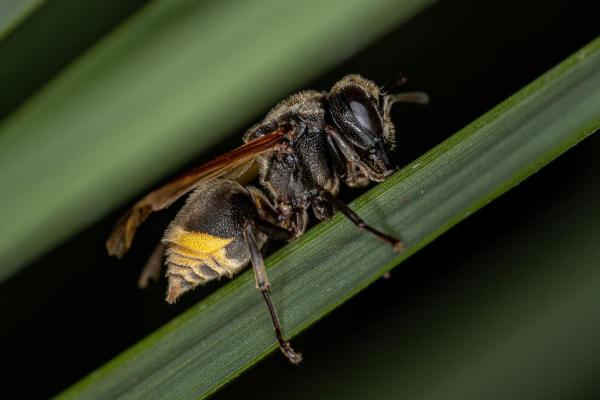
What types of wasp make honey?
A characteristic of honey-producing wasps is that they have social habits with a hierarchical structure. In contrast, solitary wasps do not produce honey. Wasps that so make honey carry out a process similar to that of honey bees:
- They collect nectar from different flowers.
- They consume some of it, but the rest is stored in a specialized organ known as a nectar crop used only for this substance.
- After accumulating enough nectar, they return to the nest and regurgitate it. It is then is taken by worker wasps who also carry the substance in their own nectar crops and mix it with certain enzymes that help to form honey.
- The processed nectar is stored. As it loses moisture, it becomes honey, that viscous substance we consume as food.
Wasp species that make honey
There are only a few species of honey-producing wasps, the following being the most representative:
- Mexican honey wasp (Brachygastra mellifica)
- Camoati (Polybia occidentalis)
- Tu (Brachygastra lecheguana)
- Asian hornet (Vespa velutina)
- Paulista paper wasp (Polybia paulista)
Learn more about how hymenopterans are differentiated with our article investigating the differences between wasps, hornets and bees.

Why do most wasps not make honey?
The main reason most wasps do not produce honey is because of their dietary habits. Honey bees produce honey as a way to store food over a long-term period when flowers are scarce. They have no food source other than the nectar and pollen of flowers, providing their sources of carbohydrates and proteins. Without honey, they may die.
Unlike bees, most wasps are predators or scavengers. Although some feed on nectar, fruits and other plant sources in their adult stage, during their larval phase they consume animals provided by their mother. By having an omnivorous diet which is more varied, they do not depend on the production and storage of a product such as honey.
There is also a difference in the type of colony in which these insects are organized. Bees have more stable colonies and usually with a greater number of individuals, so they need to store food such as honey. Conversely, wasps tend to have seasonal colonies of smaller numbers and with more food available throughout the seasons. In addition, there are species of wasps with solitary habits.
Discover more about how wasps survive with our article on how long does a wasp live?
Do wasps make hives?
The term hive is more related to the structures where bees are housed. It also is the place where the honey they produce is created and stored. Wasps do not make hives in this sense, but they do build nests. The type of wasp nest varies depending on the type or species of wasp.
In this context, wasps make various types of nests that vary in structure and material. Some examples are:
- Plant fiber nests: known as paper nests, they are made from materials such as wood processed by wasps. These nests are usually soft and brittle.
- Mud nests: they have a sandy texture.
- Honeycomb nests: they may or may not be covered by a protective external structure and are made of plant fiber. Their structure makes them more sturdy than most other wasp nests.
- Individual and underground nests: for solitary species or those which live under the earth.
Wasp nests are mainly seasonal and are built for the breeding of larvae during the developmental season. When the wasp colony has fully developed, the nests usually remain empty and are not reused.
Discover more about how bees nests are structured with a related guide.
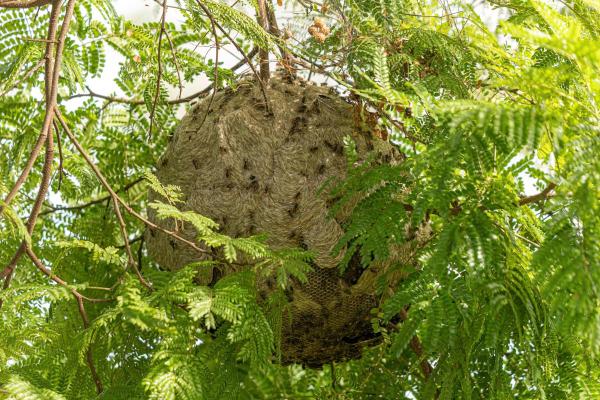
What do wasps do in ecosystems?
Although wasps are not recognized for being honey producers, they have an important role within ecosystems:
- They are biological pest controllers: many species of predatory wasps hunt and feed on other crop pest insects, such as caterpillars and aphids. This can be useful for the larger ecosystem. In addition to minimizing the populations of these pests, the use of agrochemicals may be reduced. In some cases, wasps do not directly consume these insects. Instead, they trap and immobilize them and take them to their nests to be parasitized by the eggs and larvae. In this way, they are use them as a food source for their young.
- Certain species of wasps are plant pollinators: generally considered not as efficient and widespread as bees. By visiting flowers to obtain their nectar, they transfer pollen from one flower to another, which benefits both natural ecosystems and crops.
- They are also a food source for other animals: such as birds, mammals, spiders and even other insects. In this way, they are part of the trophic chains essential for the balance of ecosystems.
Now that you know that wasps do not make honey, except for those belonging to the genus Brachygastra , don't stop learning and discover " All types of wasps ."
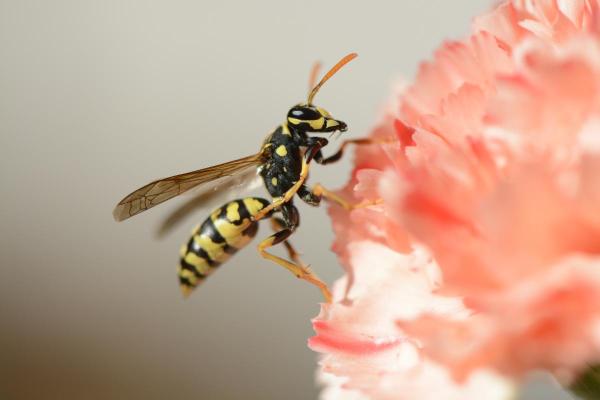
If you want to read similar articles to Does a Wasp Make Honey?, we recommend you visit our Facts about the animal kingdom category.
- Andena, S. R., & Carpenter, J. M. (2012). A phylogenetic analysis of the social wasp genus Brachygastra Perty, 1833, and description of a new species (Hymenoptera: Vespidae: Epiponini). American Museum Novitates , 2012(3753), 1-38.
- Hickman, C. P., Roberts, L. S., & Keen, S. L. (2009). Comprehensive principles of zoology.
- Reyes-Rosas, M. A., Loera-Gallardo, J., Lopez-Arroyo, J. I., & Buck, M. (2013). Brachygastra mellifica (Hymenoptera: Vespidae): Feeding behavior and preferential predation on Diaphorina citri (Hempitera: Liviidae) life stages in Mexico. Florida Entomologist, 96(4), 1588-1594.




